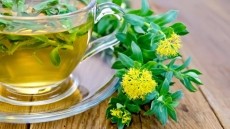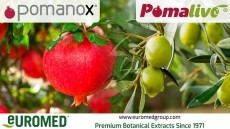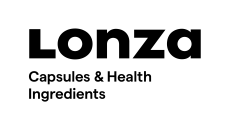Middle Eastern herb shows potential against pancreatic cancer

Thymoquinone, the major constituent of the herb’s oil, was found to have anti-inflammatory activity resulting in lower levels of inflammatory compounds linked to pancreatic cancer, according to findings presented at the American Association for Cancer Research (AACR) 100th Annual Meeting 2009 in Denver.
The study findings, which have been accepted for publication in the Oxford journal Hepatopancreatobiliary (HPB), suggest that, if future studies back up the early promise, the herb extract could offer potential benefits to people with chronic pancreatitis or those at risk of development or recurrence of pancreatic cancer.
The seed and oil of Nigella sativa have been used extensively in traditional medicine in many Middle Eastern and Asian countries, said the researchers, for the treatment of a range of conditions, including some immune and inflammatory disorders.
"These are very exciting and novel results," said lead researcher Hwyda Arafat, MD, PhD, from Thomas Jefferson University. “These potent effects show promise for the herb as a potential preventive and therapeutic strategy for pancreatic cancer. More importantly, the herb and oil are safe when used moderately, and have been used for thousands of years without reported toxic effects," she added.
According to the US National Cancer Institute almost 38,000 new cases of pancreatic cancer are diagnosed every year in the US, with almost 34,000 deaths from the disease. British charity Cancer Research UK states that the pancreatic cancer has a poor prognosis overall since most cases are diagnosed quite late. Indeed, only one in every 50 cases will still be living five years after diagnosis, highlighting the importance of prevention for this type of cancer.
Dr Arafat told NutraIngredients.com that her team first reported the potential anti-cancer benefits of the herb last year at the Digestive Disease week in San Diego.
“This year, we're showing the anti-inflammatory activities and the effect of treating animals with xenografts of human pancreatic cancer,” she said.
“So, yes, you can consider this as the first (or second) report about the anticancerous effect of NS in pancreatic cancer by our group. To my knowledge, no one else published about NS in pancreatic cancer.”
Availability
The herb is available on many websites, according to Dr Arafat. “There are few websites that sell good product that is well manufactured and packed. So, it is available,” she explained.
Study details
The earlier results showed that thymoquinone could inhibit compounds called histone deacetylases (HDACs), which play a role in gene expression and have been linked to cancer progression. For the new study, Dr Arafat and her colleagues compared the anti-inflammatory properties of thymoquinone with trichostatin A, a known HDAC inhibitor previously reported to improve inflammation-associated cancers.
Using pancreatic ductal adenocarcinoma (PDA) cells pre-treated with the cytokine TNF-alpha to induce inflammation, the researchers report that the Nigella sativa extract could almost completely inhibit the expression of several inflammatory cytokines, including TNF-alpha, interleukin-1beta (IL-1b), IL-8, Cox-2 and MCP-1. Moreover, the effect was superior to that observed from trichostatin A.
Furthermore, when animal with pancreatic cancer were given thymoquinone, 67 per cent of the tumours significantly shrank, with corresponding levels of pro-inflammatory cytokines significantly reduced.
On-going study
Dr Arafat confirmed that this remains a very active area of investigation. She is currently in the process of attaining funding for a “more aggressive program to get more information from preclinical studies”.
Once funding is in the place, the researchers would “actively proceed to a phase I clinical trial. I'm currently in discussions with the medical oncologist to write a clinical trial for a small number of patients. After we obtain some preliminary data, we can then proceed to bigger trials for either prevention or therapy,” she said.












